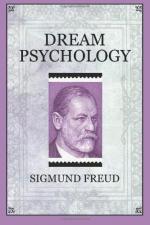I deem it appropriate and justifiable, however, to apply ourselves still further to the illustrative conception of the two systems. We shall avoid any misapplication of this manner of representation if we remember that presentations, thoughts, and psychic formations should generally not be localized in the organic elements of the nervous system, but, so to speak, between them, where resistances and paths form the correlate corresponding to them. Everything that can become an object of our internal perception is virtual, like the image in the telescope produced by the passage of the rays of light. But we are justified in assuming the existence of the systems, which have nothing psychic in themselves and which never become accessible to our psychic perception, corresponding to the lenses of the telescope which design the image. If we continue this comparison, we may say that the censor between two systems corresponds to the refraction of rays during their passage into a new medium.
Thus far we have made psychology on our own responsibility; it is now time to examine the theoretical opinions governing present-day psychology and to test their relation to our theories. The question of the unconscious, in psychology is, according to the authoritative words of Lipps, less a psychological question than the question of psychology. As long as psychology settled this question with the verbal explanation that the “psychic” is the “conscious” and that “unconscious psychic occurrences” are an obvious contradiction, a psychological estimate of the observations gained by the physician from abnormal mental states was precluded. The physician and the philosopher agree only when both acknowledge that unconscious psychic processes are “the appropriate and well-justified expression for an established fact.” The physician cannot but reject with a shrug of his shoulders the assertion that “consciousness is the indispensable quality of the psychic”; he may assume, if his respect for the utterings of the philosophers still be strong enough, that he and they do not treat the same subject and do not pursue the same science. For a single intelligent observation of the psychic life of a neurotic, a single analysis of a dream must force upon him the unalterable conviction that the most complicated and correct mental operations, to which no one will refuse the name of psychic occurrences, may take place without exciting the consciousness of the person. It is true that the physician does not learn of these unconscious processes until they have exerted such an effect on consciousness as to admit communication or observation. But this effect of consciousness may show a psychic character widely differing from the unconscious process, so that the internal perception cannot possibly recognize the one as a substitute for the other. The physician must reserve for himself the right to penetrate, by a process of deduction, from the effect on consciousness to the unconscious psychic process; he learns in this way that the effect on consciousness is only a remote psychic product of the unconscious process and that the latter has not become conscious as such; that it has been in existence and operative without betraying itself in any way to consciousness.




